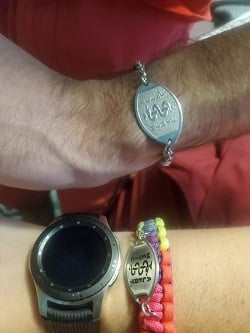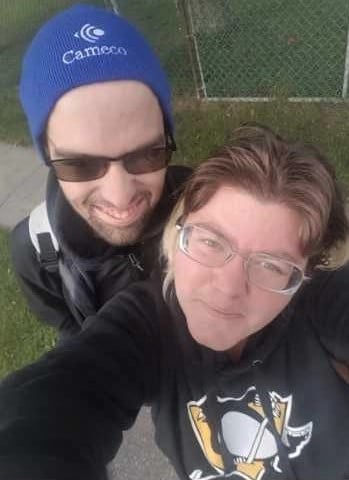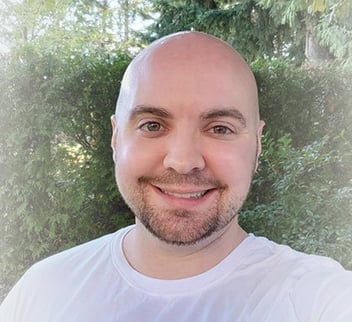Alex’s Story: When Life Gives You a Wake-up Call
While he can pronounce and spell it with ease today, pseudocholinesterase deficiency was a mouthful for Alex, just seven years old when he learned he had the rare genetic disorder. In his twenties, Alex’s father, who has the same condition, had routine wisdom teeth surgery and needed to be intubated when the general anesthesia he was given could not be broken down and he did not wake up when he was supposed to.
Pseudocholinesterase deficiency is a condition that results in increased sensitivity to certain muscle relaxant drugs used during general anesthesia, called choline esters. The drugs are often used for brief surgical procedures or in emergencies when a breathing tube must be inserted quickly. Normally these drugs are broken down by the body within a few minutes of being administered. However, people with pseudocholinesterase deficiency are not able to break these drugs down easily, and often must be supported with a machine to help them breathe. Sometimes they do not recover.
 Alex, an active kid with a passion for hockey, had a MedicAlert ID. But like many teens will do, he stopped wearing his bracelet. “Big mistake,” says Alex.
Alex, an active kid with a passion for hockey, had a MedicAlert ID. But like many teens will do, he stopped wearing his bracelet. “Big mistake,” says Alex.
At the age of 17 following several shoulder dislocations caused by playing goalie in hockey (and too many trips to the hospital to reset it), Alex required shoulder surgery at his local hospital. Despite his condition being registered in his chart, a busy anesthesiologist missed it. His mother, a nurse who knew all too well the dangers of certain anesthesia drugs for her son, inquired about what general anesthesia Alex would receive for his surgery. The surgeon said succinylcholine – the very drug Alex could not metabolize. That’s when she pulled out Alex’s MedicAlert wallet card.
“I was too out of it at the time to be able to tell the doctor about my condition,” he says. “If my mother hadn’t been there to ask if they had seen my MedicAlert wallet card, things would have been very different for me. But I really should have been wearing the ID.”
While the bracelet went back on periodically after the shoulder surgery incident, it wasn’t until Alex was in his early 20s that it went back on his wrist permanently.
“There are just certain moments in life that resonate,” he says. “My father had triple bypass surgery just as I started my Chartered Accountant (legacy) designation. I had my whole life in front of me, and he nearly lost his. It just put things into perspective for me.”
Ask Alex and he’ll tell you, “life is precious and far too short. I’ve learned that the hard way, losing family and friends over the years. Given my condition, having MedicAlert as part of my tool kit for good health is the smartest thing I can do to stay safe.”
Today, Alex is the father of two rambunctious kids, one of whom has inherited pseudocholinesterase deficiency. Next up on the list of things he needs to take care of – a MedicAlert ID for his son.



